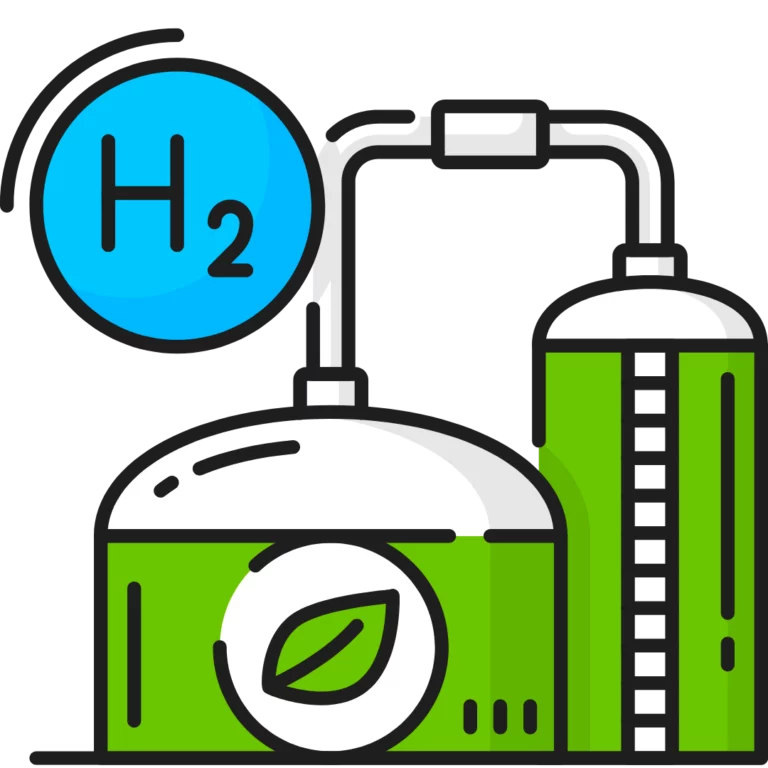Green hydrogen is
NOT
the solution

Click on an image to view the gallery. Click here to download the slides.
For decades scientists have been hyping “hydrogen fuel cells” – potentially a gamechanger for the transport and storage of wind and solar energy not consumed locally (big challenges with these renewables).


But hydrogen fuel cells still have many limitations. They are huge, heavy, and leaky, making them impractical for most vehicles; and they are less efficient than ordinary batteries when used for grid electricity storage.
When we hear about hydrogen today, it is from fossil fuel companies that want to *burn* hydrogen.
Burning hydrogen does create emissions that cause harmful health impacts in neigboring communities, such as nitrogen oxides.


These combustion companies rave about the carbon-free emissions of burning hydrogen, but they hide the fact that raw hydrogen leaking into the atmosphere is an “indirect greenhouse gas” as it increases the presence of methane, ozone, and water vapor.
The vast majority (over 99%) of hydrogen fuels presently produced around the world are chemically “cracked” out of fossil fuels.


“Black” or “brown” hydrogen is produced from coal, while “gray” hydrogen comes from fossil gas.
“Blue” hydrogen is made from fossil gas, but claims to be better because the process includes carbon capture and storage.
“White” hydrogen can be mined from naturally-occurring rock formations, but requires “fracking,” an intensely violent process that frequently pollutes groundwater and causes earthquakes.


“Pink” hydrogen is powered by nuclear energy, and beyond the inherent radioactive dangers, it has many of the same problems as so-called “green” hydrogen,
which is produced from water electrified by wind or solar energy, and is presently so inefficient that about 70% of the energy inputs are lost.


Many critics have pointed out that “green hydrogen” is used as greenwashing cover by the fracked gas industry desperate to rehabilitate their dirty reputation– tiny reductions in emissions are achieved by blending 10-20% hydrogen into gas-fired power plants.*
The hydrogen hype robs public funds that should be spent on real solutions that would create far more jobs and cause far less harm.

FOOTNOTE: (this fact sheet has good details, only slightly dated): 23 PEAK Coalition. “PEAK Coalition Hydrogen Statement.” Retrieved February 1, 2023 from https://www.peakcoalition.org/publications